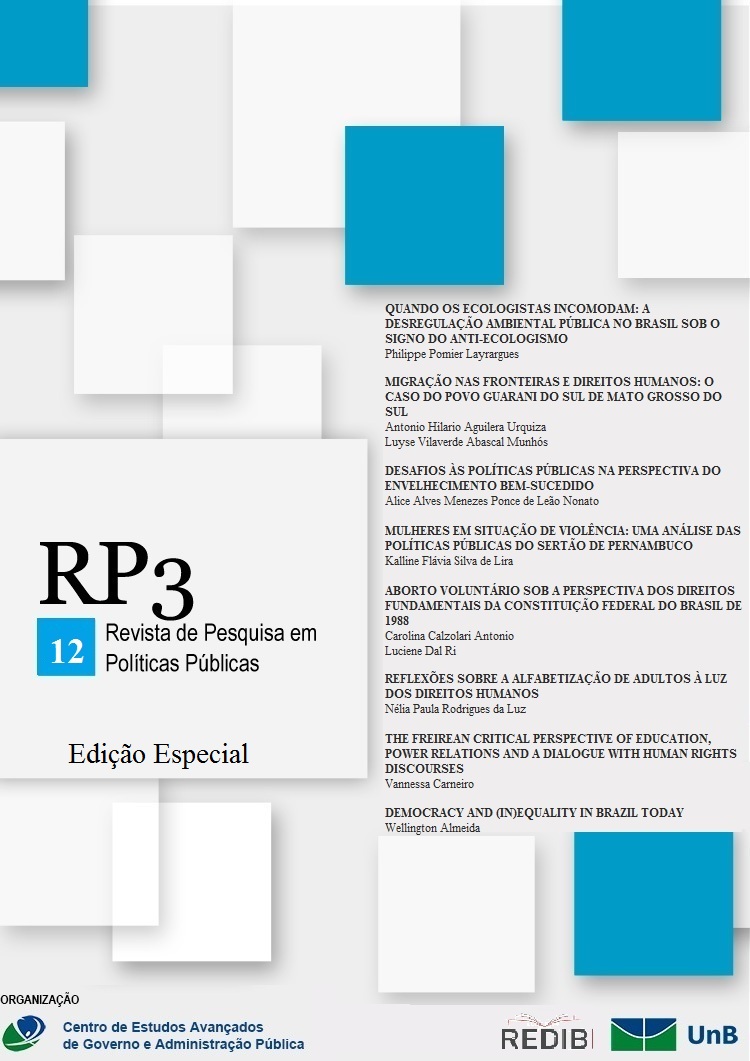Democracy and (in) equality in Brazil today
DOI :
https://doi.org/10.18829/rp3.v0i12.31108Résumé
This article has as a goal to debate a political hypothesis about what would be the weight and the role of the conflicts surrounding the inequality/equality agenda, and how they affect Brazilian democracy today. The central hypothesis of this article is that the current political tension in the country is a result of the rupture of social acceptance of inequality. We begin with the premise that the tense societal relations, that are expressed more and more through conflicts of opinion which come across as radical and excluding- in social networks and on the streets- are more serious than they appear. And they may also worsen if the democratic windows are not kept open by civil and political society. Furthermore, we argue that the evidence and perceptions about the huge inequality which is present in our society is at the root of this conflict, and that forces us to review some ideas about our social conciliatory formation and the acceptance of inequality as a value.
Téléchargements
Téléchargements
Publié-e
Comment citer
Numéro
Rubrique
Licence
(c) Tous droits réservés RP3 - Revista de Pesquisa em Políticas Públicas 2018

Cette œuvre est sous licence Creative Commons Attribution - Pas d'Utilisation Commerciale - Pas de Modification 4.0 International.
Os autores de trabalhos submetidos à revista autorizam sua publicação em meio eletrônico, unicamente para fins acadêmicos, podendo ser reproduzidos desde que citada a fonte. Os mesmos atestam sua originalidade e sua autoria







